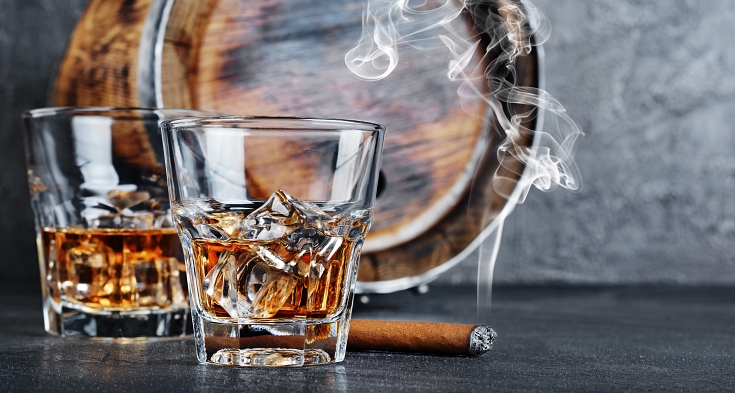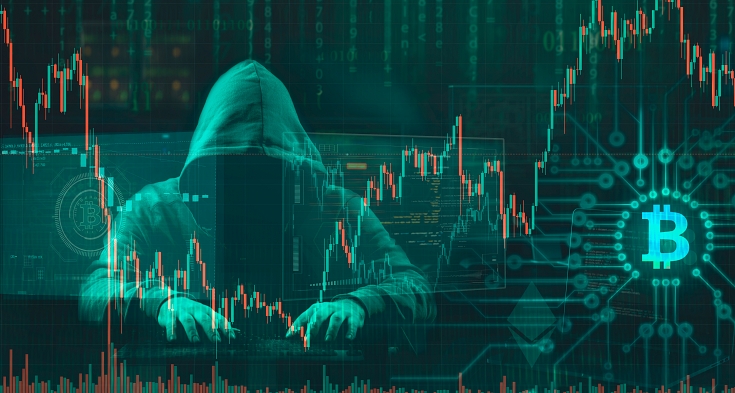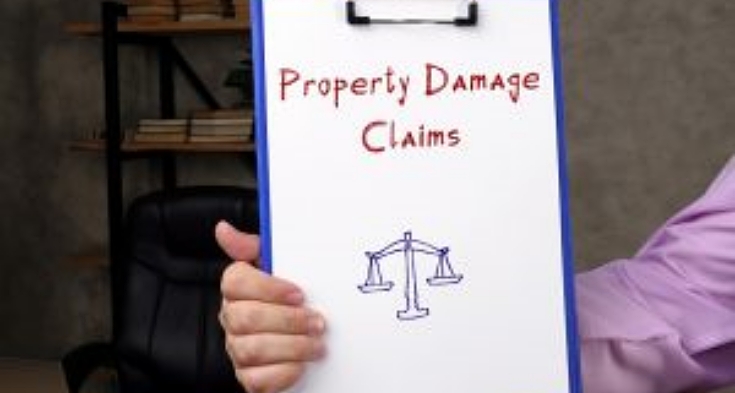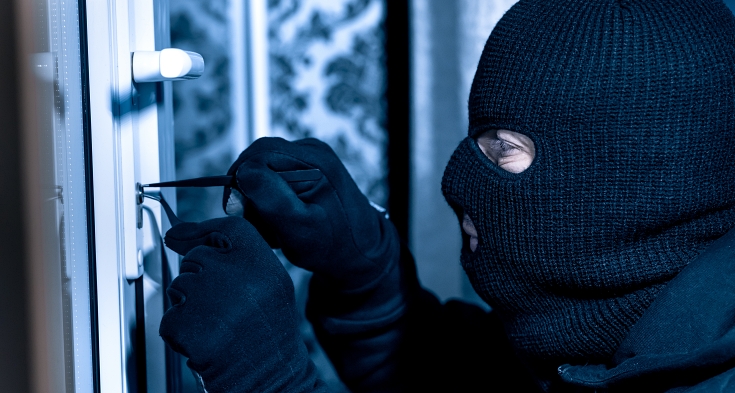
Receiving an Administrative Complaint from the Florida DBPR—especially the Division of Alcoholic Beverages and Tobacco (ABT)—can be alarming. When your Alcoholic Beverages & Tobacco License is at stake, even a single complaint can feel like a direct threat to your business and everything you’ve worked hard to build.
The complexity of Florida administrative law is daunting, and the penalties, from fines to license revocation, are severe. You deserve clarity and peace of mind.
Need immediate guidance? Call Elevate Legal Services, PLLCtoday at 561-770-3335 for a confidential consultation, or contact usto speak with an attorney about your case.
This comprehensive guide will clarify the specific Florida Statutes involved, outline the administrative process you face, and assure you of the legal options available to protect your livelihood.
A clear, step-by-step action plan for responding to a DBPR complaint, a precise understanding of the potential consequences, and the confidence that professional, solution-oriented legal support is within reach.
The Administrative Threat To Your Alcoholic Beverages & Tobacco License
Administrative complaints against Florida alcoholic beverage and tobacco licensees often stem from routine compliance checks, third-party complaints, or internal operational deficiencies. The allegations almost always center on key Florida Statutes, which our authoritative legal team specializes in defending.
Here’s how these violations are typically categorized:
 Category 1: Prohibited Sales and Underage Violations
Category 1: Prohibited Sales and Underage Violations
These violations are frequently cited and carry high-stakes penalties because they involve the unlawful sale or provision of alcohol.
F.S. 561.55(3)(b): Furnishing Alcohol to Minors
This statute is straightforward but strictly enforced. It prohibits you, your employees, or anyone acting on your behalf from selling, bartering, furnishing, or delivering any alcoholic beverage to a person under 21 years of age.
The allegations often arise when an undercover minor successfully purchases alcohol, or when inadequate ID checking leads to a violation. Even if the minor presented a fraudulent ID, the licensee faces responsibility.
F.S. 562.06: Prohibitions on Unlawful Sales
This statute broadens the scope of prohibited sales beyond just minors. It bans the sale or serving of alcoholic beverages to visibly intoxicated people or habitual drunkards.
Additionally, it holds licensees accountable for permitting underage consumption or other unlawful activities on the licensed premises.
Category 2: Licensing Compliance and Recordkeeping
These statutes focus on the professional and operational responsibilities required to maintain your license in good standing. Violations here often come from audits or investigations into your business practices.
F.S. 561.23: General Licensing Requirements
This section establishes the mandatory guidelines for obtaining and preserving your license.
Failure to comply typically involves operating without a valid liquor license, failing to renew your license on time, or making unauthorized changes to the premises or operating structure. Compliance is mandatory, and any lapse may result in immediate administrative action.
F.S. 561.20(2)(a)5: Compliance and Recordkeeping Deficiencies
This statute addresses the privileges granted to licensees, focusing heavily on proper documentation and operational adherence to state rules.
Common allegations include improper or incomplete recordkeeping (missing sales logs or invoices), selling outside permitted hours or days, or engaging in unauthorized promotions or distribution activities. The Division uses administrative code rules (like 61A-4.010 on recordkeeping) to enforce this statute strictly.
Navigating The DBPR Administrative Complaint Process
When you receive a formal complaint, the process can be complex. You must act swiftly and strategically. Our practical four-step roadmap guides you through the necessary response steps.
Step 1: Immediate Legal Consultation
Do not delay. The complaint document includes crucial deadlines, including the period for filing your Election of Rights form. Missing this deadline can result in a default judgment against you.
Engaging an experienced administrative law attorney immediately is the single most important step. We provide the reassuring counsel you need to assess the seriousness of the allegations and formulate an initial plan.
Step 2: Investigation and Evidence Preservation
Once retained, we initiate our defense by securing all relevant materials related to the incident.
This involves preserving CCTV footage, retrieving staff schedules, verifying training records (like TIPS or MBCL certification), and gathering daily sales logs. This evidence is crucial for challenging the DBPR’s findings or demonstrating strong preventative measures.
Step 3: Formal Response and Election of Rights
You must file a detailed, written response.
Your Election of Rights form requires you to choose between an informal hearing (for non-disputed facts) or a formal hearing (if you dispute the factual allegations). This choice is highly strategic and should only be made after consulting with counsel.
Step 4: Defense Strategy and Negotiation
Our attorneys craft a customized defense based on the specific statutes cited.If the facts are weak, we may file a Motion to Dismiss. If the evidence supports a violation, we often work to negotiate a Consent Orderor settlement agreement to minimize the penalty, such as converting a lengthy suspension into a manageable fine.
Penalties And Why Proactive Defense is Essential
The penalties for these violations are designed to protect the public, but they can devastate a business. Licensees can face:
- Financial Sanctions:Monetary fines that often start in the thousands of dollars.
- Business Interruption:License suspension that can last from a few days to several months, stopping your revenue stream completely.
- Revocation:The permanent loss of your right to sell alcohol and tobacco for severe or repeated offenses.
The core issue is this:Without effective legal advocacy, the DBPR is likely to impose the maximum sanction.
Protecting your license requires more than just reactive litigation. Our attorneys offer proactive compliance counseling, auditing your operations to identify and correct potential regulatory weak spots before a complaint is ever filed.
Your Trusted Partner In Alcoholic Beverages & Tobacco License Defense
Facing a government investigation can be an overwhelming experience. At Elevate Legal Services, PLLC, our focus is always client-centered, providing credible and reliable defense services.
We bring unmatched experience in DBPR and ABT administrative law, ensuring you receive a professional and focused defense strategy. We understand that your livelihood depends on the outcome.
We manage the process, from initial inquiry to DOAH hearings and appeals, so you can continue to manage your business. We focus on our attorney experience and a record of achieving favorable outcomes, preserving licenses, minimizing fines, and helping businesses emerge stronger and more compliant.
 Conclusion
Conclusion
If you have received an Administrative Complaint under F.S. 561.20, 561.23, 562.06, or 561.55(3)(b), you have a right to an aggressive, solution-oriented defense. Do not allow fear or confusion to jeopardize your future.
Take control of the situation now.
Elevate Legal Services, PLLC, is ready to provide the professional and compassionate representation you need. Call us immediately for a confidential consultation to secure your defense and protect your Florida alcoholic beverages & tobacco license.
Call 561-770-3335 today or visit ourContact Formto schedule your consultation.
Frequently Asked Questions (FAQ)
1. What is the DBPR Division of Alcoholic Beverages and Tobacco (ABT)?
The DBPR is the Florida state agency responsible for licensing and regulating businesses and professionals. The ABT is the division within the DBPR that specifically oversees the alcoholic beverage and tobacco industries, ensuring compliance with state statutes and administrative codes.
2. What is an “Election of Rights” form?
The Election of Rights form is a mandatory document that must be filed in response to a DBPR Administrative Complaint. It allows the licensee to choose whether to settle the case, request an informal hearing (if facts are undisputed), or request a formal hearing before an Administrative Law Judge (if facts are disputed).
3. What is the difference between an informal and a formal hearing?
An informal hearing is held when the licensee accepts the facts of the violation but wishes to argue for mitigation of the penalty. A formal hearing is a trial-like proceeding held before a DOAH judge, used when the licensee disputes the factual allegations and seeks to have the complaint dismissed.
4. How severe are the penalties for a first-time sale to a minor violation (F.S. 561.55(3)(b))?
Penalties are determined by the severity and the licensee’s history, but a first-time violation can result in significant monetary fines (often $1,000–$3,000 or more), mandatory staff training, and potentially a short license suspension, or at least a probationary period.
5. Can Elevate Legal Services, PLLC, help me prevent future administrative complaints?
Yes. Beyond defense, we offer proactive compliance strategies, including site audits, review of recordkeeping systems, and development of updated internal policies designed to exceed DBPR expectations and minimize the risk of future violations.





